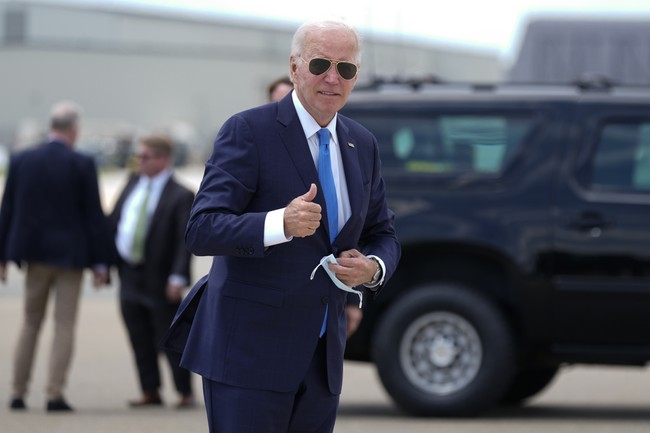Now that the taxes on tips issue has become the latest political football, everyone wants to get in on the game. First, Kamala Harris decided to copy Donald Trump’s popular campaign proposal, rather lamely arguing that Trump wouldn’t actually carry through with the plan, whereas she would. But that clearly wasn’t good enough for the Democrats who have been desperately casting about looking for popular policy proposals that might rescue their floundering approval numbers. With that in mind, somebody sent out Joe Biden’s Press Secretary yesterday to proclaim that eliminating taxes on tips is “something the President supports” and that he would sign such a bill into law. This looks like some awfully convenient timing, to say the least. (Washington Examiner)
President Joe Biden now supports eliminating taxes on tips — though it’s unclear when he arrived at that decision.
“This is something the president supports,” White House press secretary Karine Jean-Pierre said Monday when asked about the idea. “He supports eliminating taxes on tips for service and hospitality workers.”
GOP presidential nominee Donald Trump first proposed axing taxes for tipped wages during a June 9 rally in service-heavy Nevada. More than two months later, Vice President Kamala Harris followed suit during her own Nevada rally, saying that “it is my promise to everyone here, when I am president … [to] eliminate taxes on tips for service and hospitality workers.”
During Monday’s press briefing, reporters asked why Biden and Harris haven’t pursued such a policy during their three-and-a-half years in office and what made them come out in support of it in the last few days.
Even once we get past the obvious political pandering going on here, this issue remains at least somewhat complicated in terms of the ongoing campaigns and upcoming elections. Joe Biden’s latest, “Hey, me too” act is a blatant example of political opportunism and there are no voters in the country who need a political analyst to explain that to them. It’s not as if Biden will care, though. He’s out of the game at the end of the year and he can afford to look as mockable as he likes. He can also renege on any number of promises he previously made without penalty, including his pledge not to pardon Hunter or commute his sentence.
Biden’s window of opportunity to act on this idea may be extremely limited, however, if it’s even possible at all. Both Chambers of Congress are in recess until Monday, September 8, and that will only be a brief, three-week session before they return to recess until after the elections. I somehow doubt a brand new tax bill dealing with this single issue will be high on their priority list. Even if such a bill were to pass and Biden signed it, that action wouldn’t only take the issue off the table for Trump. It would eliminate it for Harris as well.
As to the two candidates and how they handle this, Trump appears to have the upper hand, but only slightly. He gets credit for being the first one to propose the popular measure on the campaign trail. He’s also pitching it as a campaign promise that he would work toward if and when he returns to office. He has the opportunity to demand that Harris explain why she hasn’t been working with Joe Bidean and the members of Congress to get this done for the past four years if she thought it was such a good idea. Of course, Harris can ask Trump why he didn’t work on it during his first four years in office as well.
The answer to the first part of that question should be obvious. The Democrats didn’t utter a peep about ending taxes on tips and gratuities for all of that time because they were not at all focused on helping out workers in those industries. The Democrats haven’t been “the party of the working class” for a very long time. They are now the party of the coastal elites and endless wars. When Trump came along with his new brand of populism prioritizing workers, he was regularly pilloried for it in the legacy media. But now, at the 11th hour, the Democrats have seen just how popular such ideas are and how unhappy voters are with the results of their reckless spending policies. It may turn out to be too little, too late, however. Ending taxes on tips may not prove to be a watershed moment for the economy, but it’s not a bad place to start.
Read the full article here




![WaPo Reporter Pushed KJP, White House To Censor Trump-Musk Conversation On X [VIDEO] WaPo Reporter Pushed KJP, White House To Censor Trump-Musk Conversation On X [VIDEO]](https://www.rvmnews.com/wp-content/uploads/2024/08/2024.08.13-01.34-rvmnews-66bb60f850218.jpg)
![Megyn Kelly Unleashes on LA Fire Chief Over DEI Policies in Fiery Rant [WATCH] Megyn Kelly Unleashes on LA Fire Chief Over DEI Policies in Fiery Rant [WATCH]](https://www.lifezette.com/wp-content/uploads/2024/11/2024.11.22-02.25-lifezette-67409458c5c7e.jpg)



